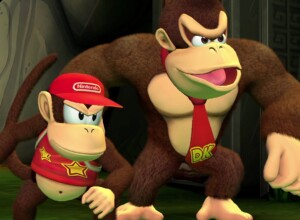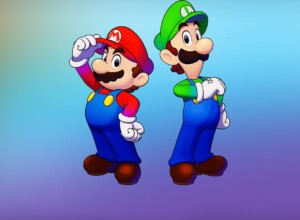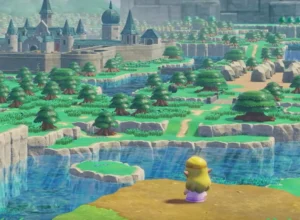Another week, another Wii-era remaster returns to haunt modern platforms.
How do you exorcise a ghost? For the good folks in the First Encounter Assault Recon unit, automatic weapons appear to do the trick. If, on the other hand, your name is Luigi, and you find yourself in a cursed mansion, then reach for the nearest vacuum cleaner. Pac-Man bravely proposed the notion that the souls of the perished may, in fact, provide a decent meal. If you are a resident of Silent Hill, meanwhile, and the phantoms are figments of your own private suffering, then a long look in the mirror might do it. Fine solutions all, but the most fashionable comes from Project Zero: Mask of the Lunar Eclipse, which has you vanquishing the unrestful dead by taking their photograph. If only they would stop fidgeting.
Project Zero began on the PlayStation 2 in 2001. (It bore the far better name of “Fatal Frame” in America, while in Japan it was simply called Zero.) Its creator, Makoto Shibata, hails from the same haunted school as Keiichiro Toyama, who gave us Silent Hill and Siren. Both developers specialise in that clammy and clawing brand of Japanese horror, inspired by the likes of Ju-On and Ringu, which centre on women in white who rise from the depths to do us mortal harm. Both experiment fruitfully with perspective; for Siren, Toyama had us gaze from a ghost’s-eye view, while Shibata has us peering through a viewfinder in a flash of panic. And both would certainly look out of place at the beach, drizzled in happy heat, with little umbrellas in their drinks. (Though I, for one, would relish the sight.)
If Toyama is the more accomplished wrangler of climate – cloaking his characters in a milky fog or soaking them in watercolours, as he did in Gravity Rush – Shibata is the keener peddler of pulp. His games are imbued with an arcade streak, and there are times when Mask of the Lunar Eclipse seems like a horror movie trapped in a Sega cabinet. Watch as you shoot a spectre in the act and are treated to a deluge of points. The first time I caught one, looming through the murk of an abandoned museum, I felt the same kick – the same urge to curate and capture – as I did with Pokémon Snap. You are rewarded for waiting until the very last lunge before clicking the shutter, the closer they are to the lens the better. Indeed, if the ghouls of Project Zero are riled and raw with emotion, it’s difficult to shake the idea that you are cajoling them into the ultimate Kodak moment: Yes, good, give me anger! Great!

This means that the story in Mask of the Lunar Eclipse doesn’t get much of a chance to develop. We take the role of Ruka Minazuki, a young amnesiac woman who goes to Rogetsu Island, the site of an abandoned sanatorium, to investigate her past. Though not before playing as Madoka Tsukimori, a friend of Ruka’s, who ventures to Rogetsu first and is killed there. In the course of the plot, we also play as another friend, Misaki, and as Chōshirō, a cop who is cuffed to the girls’ shared history by way of a grisly crime, years before. These shifts, to say nothing of the frantic action, cause the narrative to feel shaken; it blooms and blots into place, then fades from our view. It could do with a rush of gravity.
The game is co-directed, co-written, and co-fragmented by Goichi Suda. Thus, the arrival of Mask of the Lunar Eclipse, which was first released on the Wii in 2008, and only in Japan, will be manna from Heaven not just for horror hounds but for fans of Suda’s idiosyncratic methods. Ruka’s condition is referred to as “Moonlight Syndrome” – a nod to Suda’s game of the same name from 1997 – and the controls, originally formulated with the tethered motions of the Wii in mind, feel rusted and jammed. From The Silver Case to Killer7, Suda has long had a taste for awkward inputs. Why should our passage into virtual places be smooth and unflustered, when wrestling our way into a fiction can be its own victory, pinning us fast to the drama? It’s no wonder that he makes a spry director of horror, one of the few genres in which spoilt controls can actually spike the hell-brew for the better.
The frights on offer here are of a rare stock. Behold the wraith of a small boy, eyes rimmed in shadow, pooling behind the frosted glass of a door. Or the nurse (a proud trope of the genre, ever since Silent Hill cemented it as a scaring profession) who wells up out of the wallpaper like glue. The fact that, once snapped, both are catalogued in your Ghost List as though they were collectible stickers does nothing to warm the chill of first encountering them. In those moments, as you wheel round in cramped hallways and cluttered rooms, you might wish for a blast of assault recon, but you’re better off without. Solid scares are getting harder to come by, and even stalwarts such as Resident Evil can no longer be relied upon to unsettle; it may be time for those at Pan-European Game Information to list horror as a protected species.

Mask of the Lunar Eclipse also hails from another genre, equally worthy of celebration – a narrow but well-nourished patch of games that fixate on photography. Beyond Good and Evil had us gathering proof of wrongdoing, in order to shock an oppressive regime out of power. The hero of Dead Rising, Frank West, played paparazzo to ranks of mouldering zombies. And, more recently, there was Toem – a miniature masterwork, veiled in smokey black-and-white, which itself had no shortage of spirits, wafting like sheets on the breeze. All of which is to say that Mask of the Lunar Eclipse has to contend with a rather surprising depth of field, and that it more than holds its own, bringing not only jitters and jump scares but ideas to the fold.
Before setting off, Ruka wonders, “If no one remembers something, does that mean it never happened?” Perhaps you aren’t merely battling these ghosts but paying them a last respect, committing them to the memory of film and freeing them to let go of our world. Gotta detach ’em all!
Game: Project Zero: Mask of the Lunar Eclipse
Platform: Nintendo Switch, PC. PlayStation 4, PlayStation 5, Xbox One, Xbox Series X/S
Developer: Koei Tecmo
Publisher: Koei Tecmo
Release Date: March 9, 2023






